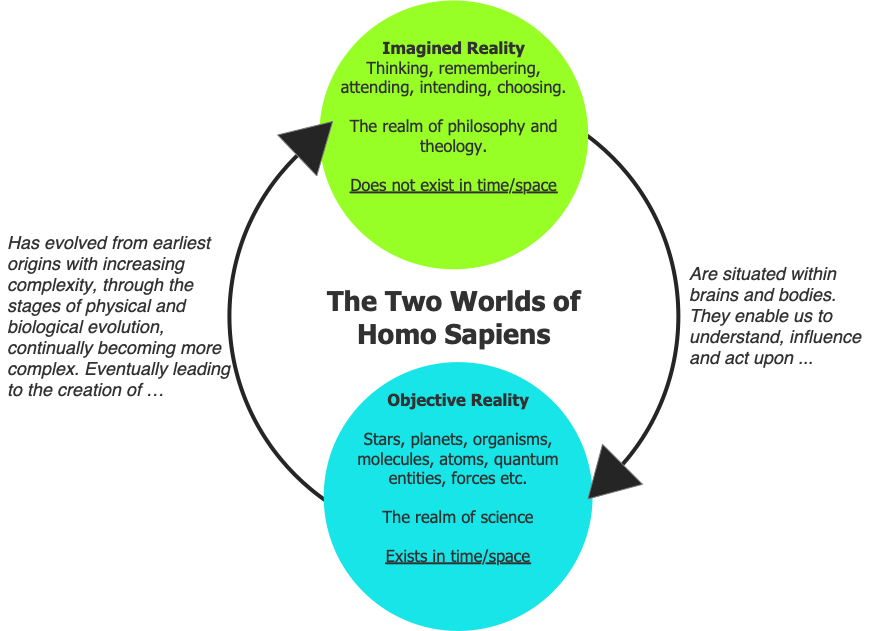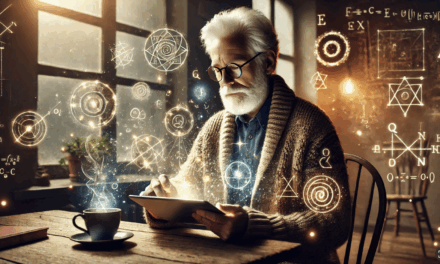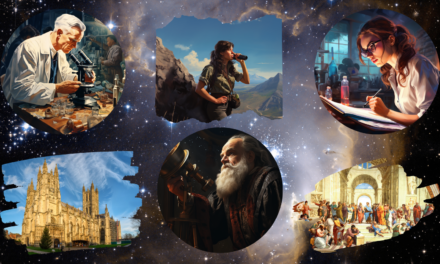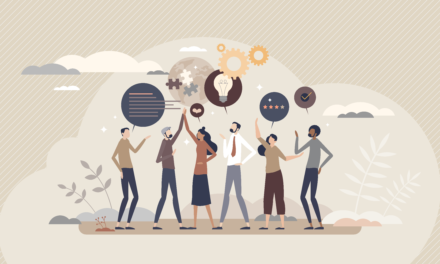Science is providing hope for humanity in the struggle against Covid-19
As people worldwide suffer under the onslaught of the coronavirus pandemic, Science is daily making the headlines. New vaccines developed with unprecedented speed and improved treatment methods offer us hope of eventually finding an acceptable way to live with the virus in our midst. You could be forgiven for thinking that Science alone will save us from Covid-19.
But that would be ignoring the effects of factors such as vaccine nationalisation, anti-Vax movements in many countries, or political ideologies that allow the virus to spread freely. These factors are all hindering progress in the global struggle against the virus. And none of these obstacles can be removed or reduced by Science alone.
Science, as we know it today, provides reliable knowledge about the natural world. It identifies ‘laws of nature’ that govern everything in the material universe and supports its conclusions with incontrovertible facts supported by empirical evidence. To many people today, scientific knowledge trumps all other kinds of knowledge to such an extent that Science alone will safeguard the future of humanity here on earth. Why wouldn’t it? After all, we are made from the same atoms and molecules as everything else in the universe, and we are subject to the same ‘laws of nature’.
Science is a human product of cultural evolution
But that isn’t the whole story. Science itself has only been around for the last five hundred or so years. And it could not have evolved if groups of human beings had not, about 70,000 years or so ago, begun to form elaborate cultural structures. These structures took shape not in the physical world of atoms, molecules and objects, but in the invisible subjective world of people’s minds. As language and writing evolved, our ancestors discovered that they could co-operate flexibly in large numbers by inventing and telling each other stories. As animism gave way to theology, philosophy and mathematics expanded the range of these shared narratives and finally paved the way for the development of Science. And gradually at first, but with ever-increasing speed, this cultural evolution has overtaken biological evolution as the driving force of change on our planet.
Until that is, something like SARS-CoV-2 comes along and spreads Covid-19 throughout the human race. At which point it becomes a race between the virus propelled by nature and biological evolution and humanity driven by our collective cultural ability to evolve.
Biological evolution and cultural evolution take place in different worlds
Biological evolution takes place entirely within the physical, material world, which means that it falls within the scope of Science to understand the virus’s mechanisms for spreading and mutating. Science can also help our bodies resist the virus (with vaccines) and recover if we are unfortunate enough to succumb to Covid-19 (with new and re-purposed medicines).
Some eminent scientists maintain that this physical, material world is the only one that exists. They back up this assertion by pointing out that human minds are simply something that human brains produce. In some way that is not yet fully understood, minds are merely the consequence of brain activity and will eventually succumb to scientific inquiry. There is even a name for this particular research activity – the ‘hard problem of consciousness’. As the eminent philosopher Mary Midgely puts it, “Instead of seeing the physical sciences as real, but limited, sources of knowledge about material facts, we are now called on to revere them as the metaphysical source of all our knowledge.”
And that just can’t be right. Yuval Noah Harari, who wrote the best-selling book ‘Sapiens’, uses the term ‘Cognitive Revolution’ to signify the point at which cultural evolution began among humans. He explains its significance this way: “Ever since the Cognitive Revolution, Sapiens have … been living in a dual reality. On the one hand, the objective reality of rivers, trees and lions; and on the other hand, the imagined reality of gods, nations and corporations. As time went by, the imagined reality became ever more powerful, so that today the very survival of rivers, trees and lions depends on the grace of imagined entities such as the United States and Google.”
In other words, biological evolution occurs in the natural world of ‘objective reality’ while cultural change starts in the ‘imagined reality’ that shapes humanity’s social world.
The difficult path to harmony in ‘imagined reality.’
This idea of two co-existent kinds of reality is essential when considering the struggle between humanity and the virus. In objective reality, Science is providing us with a wealth of resources. But many of the obstacles to its success lie in the imagined reality of our cultural world. Our “them and us” mentality gives rise to vaccine nationalism. Our love of stories about conspiracies feeds the anti-Vax movement, and the political systems allow populists or autocrats to exercise power in ways that permit the pandemic to thrive.
It is not easy to see a social and cultural path out of the pandemic, so Science does indeed look like our best bet. But it’s easy to forget that how Science creates new knowledge is itself a social and cultural phenomenon that originated in ‘imagined reality’. The global scientific community shares a well-established process broadly followed by all aspiring scientists. Editors of scientific journal publish research results only after panels of peer reviewers have thoroughly vetted the papers.

And that concept of a community that works together to advance knowledge, can perhaps give us a glimpse of something broader to which we might aspire. A global culture that works for the benefit of all humans, not just a few of us. One that allows us to harvest the benefits of scientific discoveries such as those developed in the struggle with Covid-19, rather than hindering and limiting them. And perhaps one that inhibits the destructive power that is the other side of scientific advances, such as pollution, habitat loss and climate change.
It won’t be easy. Even though the global scientific community is great at creating new scientific knowledge, there are still barriers to overcome between the worlds of Science and the Humanities. Barriers that are just as great, in their own way, as those separating nations or religions. And barriers in imagined reality can all too readily become conflicts in objective reality. That is why this web site promotes practices such as ‘shared stories’ and ‘thinking together’.
This is very much a ‘work in progress’.
Terry Cooke-Davies
April 2021.






